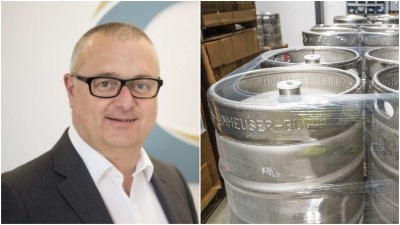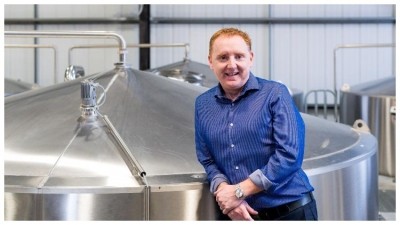What funding options are available to pub operators?

Potential finance options for pubs are almost endless but operators should be knowledgeable on the different types available and what can work best for them.
Property specialists Christie & Co can also help with funding with its finance arm, which aims to be an independent broker and help to find the best lenders for operators.
It says the terms of a commercial loan against a pub will vary from lender to lender but, as a general rule, the loan to business ratio may be between 65% and 100% of the value of the property, with a 15 to 25-year mortgage term.
It advises operators to consider various points when thinking about buying a business, including ensuring they have the right level of experience to run the business and how they will do it.
Enterprise Investment Scheme (EIS)
A Government scheme that is designed so companies can raise money to help grow by offering tax reliefs to individual investors who buy new shares in the business.
Operators can raise up to £5m each year and a maximum of £12m in the company’s lifetime and this includes amounts received from other venture capital schemes.
A company must receive investment under a venture capital scheme within seven years of its first commercial sale.
The scheme rules must be followed so investors can claim and keep EIS tax reliefs relating to their shares.
Oakman Inns chief executive Peter Borg-Neal invested his own cash into the business, before raising funds through an EIS, which the company has done several more times.
He said: “With the EIS, investors are able to claim back 30% of their investment and as long as they hold the investment for more than three years. When they sell, profits are free of capital gains tax.
“But just to be clear, we couldn’t do that anymore because it is for the early stage. We are too big now and have too many employees.
“We have now taken on bank debt and investment in our freehold properties from our backers Downing LLP.”
Take a step back
They also need to think about how well the business is doing, its location and ensure there is enough pro t to be able to repay a loan easily, allowing operators to take enough out of the business for themselves.
Business owners also need to look at their own contribution to the company and what they are able to invest into it such as savings and other properties as well as their credit history.
However, loans aren’t the only option available for operators looking for funding as more options have opened up in recent years, some of which don’t even include banks.
Bank investment and private equity
Award-winning operator The New World Trading Company (NWTC) has received a £5.6m cash injection from NatWest, in a bid to help fund the pub company’s roll-out programme.
This followed a backing of £23m from the bank in 2017, which included a £4m capex facility, which helped the support the business’s ambitious expansion plans across the UK.
In fact, NWTC isn’t the only operator that has received funding from a large bank as The Alchemist kicked off 2018 with a £16m investment from Santander.
The company behind 12 UK venues employing more than 700 people has secured an additional multimillion-pound finance package from existing debt funders Santander to support its growth plans.
The additional funds will be invested in continued brand innovation, rejuvenating existing sites and the acquisition of new locations.
The group was established in 2010 and backed by Palatine Private Equity, which supported a buyout from Living Ventures in 2015. Fellow multiple operator Red Oak Taverns received a multimillion pound boost to help it expand across the country and refinance its existing debt last year (October 2018).
OakNorth bank handed the pub group a £42m loan, and debt finance director of the bank Mohith Sondhi said its core focus was to help businesses achieve their growth ambitions.
Capital from fans
Crowdfunding is just one example of how operators can bypass traditional finance methods and ask their audience for backing.
While this seems to be relatively common place in the brewing sector, it is becoming more popular in the pub trade with operators such as the Phoenix Arts Club in Soho, central London, setting up a crowdfunding page to raise money for a new theatre curtain inside the venue.
With lots of options to consider, using an independent adviser can help operators go in the right direction, according to Christie Finance managing director John Mitchell, who says: “Use a finance broker because a lot of the go-to lenders, such as a high-street bank, have dilated their appetites in general but particularly in the hospitality sector.
“They (high street lenders) are increasingly picky about what they will lend on and are inconsistent. If you’re after the best deal, you need to be engaged with more than one lender.”
Crowdfunding
Crowdfunding is a way of raising finance by asking a large number of people each for a small amount of money, using the internet to talk to thousands or millions of potential funders.
There are three types of crowdfunding, including donation or reward crowdfunding. This is when people invest simply because they believe in the cause and rewards can include a free meal at the pub, naming something after an investor or having their name on the wall of the pub.
Returns are considered intangible and donors have a social or personal motivation for putting their money in.
Debt crowdfunding is when investors receive their money back with interest. Also called peer-to-peer (P2P) lending, it allows for the lending of money while bypassing the traditional banks. Returns are financial but investors also have the benefit of having contributed to the success of an idea they believe in.
There is also equity crowdfunding. This is where people invest in an opportunity in exchange for equity. Money is exchanged for a share or a small stake in the business, project or venture.
As with other types of shares, apart from community shares, if it is successful, the value goes up and if not, the value goes down.
One operator in the hospitality industry who has used crowdfunding to their advantage is founder of Elite Bistros, Gary Usher, who famously hit his £50,000 target to open a new restaurant in Prescot, Merseyside, in just one hour.
Interest paid option
Peer-to-peer (P2P) lending is a newer option for businesses to look into when it comes to borrowing money because it involves people lending cash to individuals or businesses who receive interest and get their money back when the loan is repaid.
Mitchell adds: “The traditional route is more reliable because you know banks have money to lend whereas newer models, such as P2P, are relying upon individual investors for you.
“However, with P2P, it is the hospitality sector that appeals to investors. They like the idea of investing in the pub because it’s more relevant and exciting. ‑ e hospitality sector does attract a lot of P2P lending.
“Speed is attractive for operators because, with P2P, you can apply today and get your money in a few days’ time.”
Merchant services
A merchant cash advance can also be referred to as a business cash advance and is an unsecured business loan alternative.
It is a short-term cash injection ranging from £3,000 to £300,000, which can help support cash flow and business needs, according to finance business Merchant Loan Advance.
Operators need to agree on a simple and workable cost that is paid back, typically over six to nine months as a fixed percentage of a future credit card and debit card sales. It is designed to work alongside busy and quiet periods.
Therefore, if a pub has a slow month on card sales, operators only pay back the agreed percentage of those sales, keeping repayments in line with cash flow through good times and bad.
The loan alternative is repaid only when sales are made on the card machine.
This can be used with an existing card machine and means operators can keep 100% of any cash transactions.
For example, if a business borrows £10,000 to refurbish a pub and agrees to pay back £12,000. On average, the business generates £20,000 a month on card transactions and the operator agrees 10% of future card processing sales will be used to pay back the advance.
The business would pay £2,000 per month and it would take about six months to repay the cost of the amount.
Future warning
However, the possibility of red tape could create problems for P2P lending, Mitchells warns.
“At the moment, P2P is doing well but there may come a point where a large P2P rm will fail and the Financial Conduct Authority will be concerned about the platforms and increase regulation, which might put them in the same bracket as banks, which comes with regulatory issues and without the ability function as they do at present,” Mitchell says.
“The main appeal [of P2P lending] is timing and that may not be the case if there is regulation to adhere to.”
He also highlights the future of the finance for the pub sector, including more options becoming available for operators.
Mitchell adds: “The high street banks have diluted appetite towards the sector. There are newer and niche lenders. We have seen an increase in private debt-financing companies lending to the hospitality sector.
“There are more alternatives available in the market. While it’s good to have more choice in any market, it is having that accessibility to those options that is the challenging thing.
“You have seen a rise in the number of brokers because publicans might not have the knowledge.”











